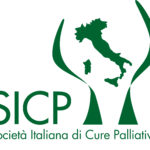
Don’t initiate or prolong artificial nutrition (enteral or parenteral) in late stage cancer patients with a life expectancy of less than a few weeks and a Performance Status <50.
Currently, there is no evidence from observational or experimental studies showing the effectiveness, in terms of increased survival or improved quality of life, of administering artificial nutrition to end-stage cancer patients with limited life-expectancy and poor performance status. Some studies highlight the complications caused by receiving enteral nutrition in this patient group.
Sources
1. Bozzetti F. et al. Giudelines on artificial nutrition versus hydration in terminal cancer patients. Nutrition 1996; 12: 163-167.
2. Casarett D, Kapo J, Caplan A. Appropriate Use of Artificial Nutrition and Hydration — Fundamental Principles and Recommendations. N Engl J Med 2005; 353: 2607-2612.
3. Keung EZ, Liu X, Nuzhad, A. In-Hospital and Long-Term Outcomes after Percutaneous Endoscopic Gastrostomy in Patients with Malignancy J Am Coll Surg 2012; 215(6): 777-86.
4. Muscaritoli M et al. Parenteral nutrition in advanced cancer patients. Crit Rev Oncol Hematol. 2012 Oct; 84(1): 26-36.
5. Dev R., Dalal S., Bruera E. Is there a role for parenteral nutrition or hydratation at the end of life? Curr Opin Support Palliat Care 2012 Sep; 6(3): 365-70.
Download
PDFAttention. Please note that these items are provided only for information and are not intended as a substitute for consultation with a clinician. Patients with any specific questions about the items on this list or their individual situation should consult their clinician.


Recent Comments